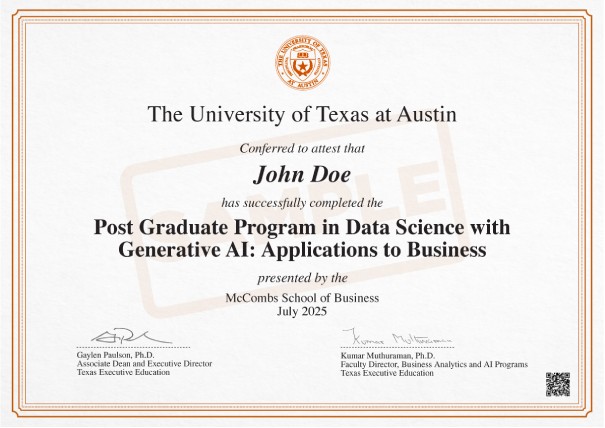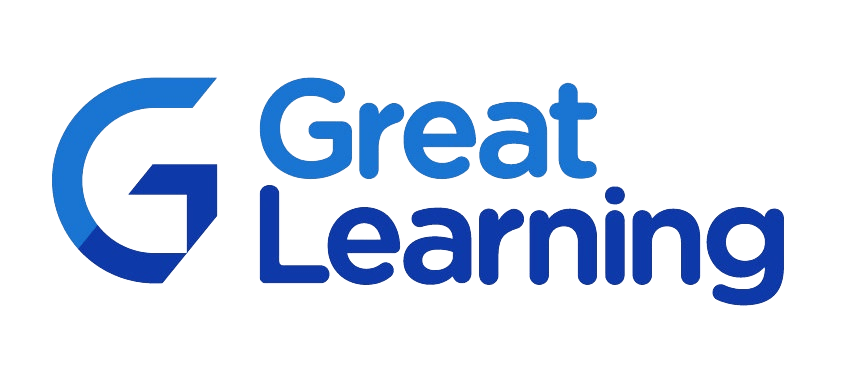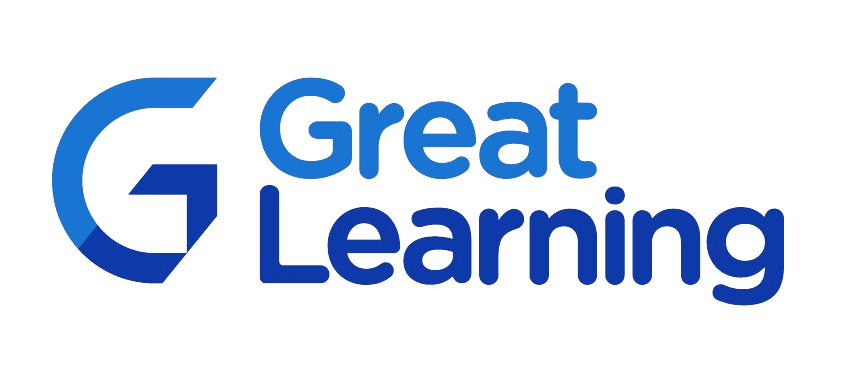Learn more about the course
Get details on syllabus, projects, tools, and more

Comprehensive Data Science and Generative AI Course
Master data science applications and secure a future-ready career
Application closes 19th Feb 2026

Program Outcomes
Champion skills in Data Science and Generative AI
Use emerging technologies to drive business insights and innovation
-
Learn to solve complex business problems with Data Science and Generative AI concepts
-
Build real-world solutions using Python, LLMs, machine learning, and advanced analytics tools
-
Build an impressive, industry-ready portfolio with hands-on projects
-
Earn 9 CEUs and a certificate of completion from Texas McCombs upon completion of the program
Earn a certificate of completion
Key Highlights
Why choose this program
-

Learn from a leading university
Earn a certificate of completion from a world-renowned university
-

Industry-ready curriculum
Master Python, SQL, machine learning, and GenAI techniques like prompt engineering and LLMs for real business use cases.
-

Work on real-world projects
Work on 7 hands-on projects and 40+ case studies using tools like Python, Hugging Face, and Tableau to build a job-ready data science portfolio.
-

Personalized program support
Get 1:1 personal assistance from a Program Manager to complete your course with ease.
Skills you will learn
Generative AI & Prompt Engineering
Python Foundations
Data Visualization
Business Statistics
Ensemble Techniques
Supervised & Unsupervised Learning
Forecasting Methods
Exploratory Data Analysis
Inferential Statistics
Linear Regression
Generative AI & Prompt Engineering
Python Foundations
Data Visualization
Business Statistics
Ensemble Techniques
Supervised & Unsupervised Learning
Forecasting Methods
Exploratory Data Analysis
Inferential Statistics
Linear Regression
view more
- Overview
- Why GL
- Curriculum
- Projects
- Tools
- Certificate
- Faculty
- Mentors
- Career support
- Fees
- FAQ

This program is ideal for
Align your learning with your professional aspirations
-
Mid-to senior-level
professionals looking to influence business decisions using data-driven insights
-
Professionals transitioning
into Data Science who want a strong foundation in analytics and Generative AI
-
Future-ready professionals
seeking to stay ahead in a business environment increasingly shaped by data and AI
-
Leaders and changemakers
aiming to implement AI-enabled strategies within their organizations
Comprehensive Curriculum
Elevate your career with our comprehensive data science and business analytics course, tailored to nurture the modern business analyst. The curriculum has been designed by the renowned faculty at the McCombs School of Business at The University of Texas at Austin. This sought-after course in business analytics encompasses modules such as Data Science Foundations and Techniques, offering deep domain exposure and empowering learners with visualization and insights tools.
-
225+ hrs
hands-on projects
-
9+
Case studies
Pre-Work | 1 week
In this week, learners will build a foundation in core Data Science and Generative AI concepts, develop Python skills for data manipulation and analysis, and explore practical applications of Generative AI. The week concludes with a hands-on case study applying Data Science to solve a real-world business problem.
- Introduction to Data Science
- Introduction to Generative AI
- Python Programming Essentials
Module 01: Data-driven Insights using Python | 4 Weeks
In this module, learners will read, explore, manipulate, and visualize data to tell stories, solve business problems, and deliver actionable insights and business recommendations by performing exploratory data analysis using some of the most widely used Python packages.
Week 1: Python Fundamentals for Working with Data
- Variables and Data Types
- Data Structures
- Conditional and Looping Statements
- Functions
Week 2: Data Manipulation Using NumPy and Pandas
- NumPy Arrays and Functions
- Accessing and Modifying NumPy Arrays
- Saving and Loading NumPy Arrays
- Pandas Series (Creating, Accessing, and Modifying Series)
- Pandas DataFrames (Creating, Accessing, Modifying, and Combining DataFrames)
- Pandas Functions
- Saving and Loading Datasets Using Pandas
Week 3: Exploratory Data Analysis for Extracting Insights
- Data Overview
- Univariate Analysis (Histograms, Boxplots, and Bar Graphs)
- Bivariate/Multivariate Analysis (Line Plot, Scatterplot, LM Plot, Jointplot, Violin Plot, Strip Plot, Swarm Plot, Cat Plot, Pairplot, Heatmap)
- Customizing Plots
- Missing Value Treatment
- Outlier Detection and Treatment
PROJECT 1
Module 02: Generative AI for Text Analysis | 2 Weeks
Week 1: Introduction to Prompt Engineering
- Introduction to Prompts
- The Need for Prompt Engineering
- Different Types of Prompts (Conditional, Few-Shot, Chain-of-Thought, Returning Structured Output)
- Limitations of Prompt Engineering
Week 2: Text Analysis with LLMs
- Introduction to Text-to-Label Generation
- Data Preparation Process
- Introduction to Text-to-Text Generation
- Structure of Text Generation Tasks
Module 03: Decision Making with Business Statistics | 5 Weeks
In this module, learners will use Python for statistical analysis to evaluate business estimates with confidence intervals and test assumptions before committing resources. They will analyze data distributions and perform hypothesis testing to support data-driven decisions.
Week 1: Inferential Statistics Foundations
- Experiments, Events, and Definition of Probability
- Introduction to Inferential Statistics
- Introduction to Probability Distributions (Random Variable, Discrete and Continuous Random Variables, Probability Distributions)
- Binomial Distribution
- Normal Distribution
Week 2: Data Sampling and Estimation for Accurate Insights
- Sampling, Central Limit Theorem, and Estimation
- Introduction to Hypothesis Testing
- Hypothesis Formulation and Performing a Hypothesis Test
- One-Tailed and Two-Tailed Tests
- Confidence Intervals and Hypothesis Testing
Week 3: Common Statistical Tests for Informed Decisions
- Test for One Mean
- Test for Equality of Means
- Chi-Square Test of Independence
- One-Way ANOVA
PROJECT 2
Module 04: Predictive Modeling with Linear Regression | 3 Weeks
Week 1: Introduction to Modeling Linear Relationships
- Introduction to Learning from Data
- Simple and Multiple Linear Regression
- Evaluating a Regression Model
- Pros and Cons of Linear Regression
Week 2: Statistical Inferences from Linear Regression
- Statistician vs ML Practitioner
- Linear Regression Assumptions
- Statistical Inferences from a Linear Regression Model
PROJECT 3
Module 05: Classification Techniques for Predictive Modeling | 3 weeks
In this module, learners will explore classification models to capture relationships between variables and categorical outcomes. They will gain business insights by identifying key factors that influence decision-making.
Week 1: Logistic Regression for Probability-Based Insights
- Introduction to Logistic Regression
- Interpretation from a Logistic Regression Model
- Changing the Threshold of a Logistic Regression Model
- Evaluation of a Classification Model
- Pros and Cons
Week 2: Decision Trees for Transparent Decision-Making
- Introduction to Decision Tree
- Different Impurity Measures
- Splitting Criteria in a Decision Tree
- Methods of Pruning a Decision Tree
- Regression Trees
- Pros and Cons
PROJECT 4
Module 06: Robust Data Modeling with Ensembling and Tuning Techniques | 5 weeks
Week 1: Bagging Ensembles for Improved Predictive Performance
- Introduction to Ensemble Techniques
- Introduction to Bagging
- Sampling with Replacement
- Introduction to Random Forest
Week 2: Boosting Ensembles for Improved Predictive Performance
- Introduction to Boosting
- Boosting Algorithms (AdaBoost, Gradient Boost, XGBoost)
- Stacking
Week 3: Tuning and Validation Techniques for Optimized Model Performance
- Feature Engineering
- Cross-Validation
- Oversampling and Undersampling
- Model Tuning and Performance
- Hyperparameter Tuning
- Grid Search
- Random Search
- Regularization
PROJECT 5
Module 07: Pattern Discovery with Unsupervised Learning | 3 Weeks
In this module, learners will apply clustering algorithms to group data based on similarity and uncover hidden patterns. The content also includes dimensionality reduction techniques to enhance understanding of intrinsic data patterns and structure.
Week 1: Insightful Data Segmentation with K-Means Clustering
- Introduction to Clustering
- Types of Clustering
- K-Means Clustering
- Importance of Scaling
- Silhouette Score
- Visual Analysis of Clustering
Week 2: Discovering Patterns with Hierarchical Clustering and PCA
- Hierarchical Clustering
- Cophenetic Correlation
- Introduction to Dimensionality Reduction
- Principal Component Analysis
PROJECT 6
Module 08: Data Querying and Analytics with SQL | 4 Weeks
In this module, learners will build a foundation in database concepts and SQL. They will write simple queries to filter and retrieve data and use advanced SQL techniques with joins, window functions, and subqueries to solve real-world data problems and extract business insights.
Week 1: Data Retrieval & Aggregation Essentials
- Introduction to Databases and SQL
- Fetching Data, Filtering Data
- Aggregating Data
Week 2: Querying Techniques for Relational Data Analysis
- In-Built Functions (Numeric, Datetime, Strings)
- Joins
- Window Functions
Week 3: Advanced Querying for Enhanced Proficiency and Insights
- Subqueries
- Order of Query Execution
PROJECT 7
Work on 7 hands-on projects
Engage in practical projects and case studies to solve real-world business problems using data and GenAI tools.
-
7
Hands-on projects
-
20+
case studies
-
Gen-AI Augmented
Practical Learning
Master industry-relevant tools
Dive into the top-rated data science course & master essential skills for an AI-powered future.
-

Python
-

Tableau
-

Matplotlib
-

Seaborn
-

NumPy
-

Pandas
Earn a certificate of completion from The McCombs School of Business at The University of Texas at Austin
Get a certificate from one of the top universities in USA and showcase it to your network

* Image for illustration only. Certificate subject to change.
Learn from UT Austin Faculty
When you choose the data science with generative AI program by the McCombs School of Business at The University of Texas at Austin, you learn from leading academicians in the field of Data Science and Engineering.
Industry mentors from top organizations
Collaborate with mentors in small group sessions to apply skills, overcome challenges, and network globally
Get dedicated career support
-
1:1 career mentoring (Optional)
Get personalized guidance from industry experts to plan your data science and AI career
-
Interview prep resources
Access curated interview questions and prep tips from top recruiters
-
Resume & LinkedIn review
Have your profile reviewed by experts to highlight key strengths
-
Career orientation session
Get access to a live session to explore roles, paths, and career direction strategies
Course fees
The course fee is USD 3,950
Invest in your career
-

Understand data science from business, technical, and conceptual perspectives
-

Build proficiency and practical skills in data science tools, including Generative AI applications
-

Tackle business challenges using data science, analytics, and Generative AI techniques
-

Perform end-to-end analysis to extract insights, applying Generative AI solutions
-
discount available
USD 3,950 USD 3,750
USD 3,950 USD 3,800
Payment Partners
Check our different payment options with trusted partners
*Subject to third party credit facility provider approval based on applicable regions & eligibility
Admission Process
Admissions close once the required number of participants enroll. Apply early to secure your spot
-

1. Fill application form
Apply by filling a simple application form.
-

2. Review
A panel from Great Learning will review your application to assess your suitability for the program.
-

3. Join the program
After the final review, you will receive an offer for a seat in the program's upcoming cohort.
Frequently asked questions
What is unique about the PGP-Data Science with Generative AI Program?
This Post Graduate Program in Data Science with Generative AI is a certificate program offered by the McCombs School of Business at The University of Texas at Austin. This program features
A comprehensive learning experience combining academic rigor, peer collaboration, and mentorship with the flexibility and convenience of an online format.
Personalized learning through small group sessions.
Hands-on experience with industry-standard tools and techniques.
Interactive real-time sessions, quizzes, assignments, and projects.
Flexibility of completing the program without quitting your job.
What is meant by mentored learning?
Mentored learning is a learning approach where a mentor guides the mentee in a specific area of knowledge and skills. Mentored learning is a key element of this program. It's a guided learning experience where you will be part of a small micro-class of 20-22 learners. In these classes, you will receive personalized guidance from a senior industry mentor.
In this Data Science program, these mentored learning sessions will be conducted over weekends, with a two-way audio and video interaction. It helps improve the skills, knowledge, and confidence of the learners.
What are the benefits of enrolling in this Data Science with Generative AI certificate course from the McCombs School of Business at The University of Texas at Austin?
Enrolling in this program gives you access to numerous benefits, including:
The McCombs School Advantage: Learn from the renowned McCombs School of Business at The University of Texas at Austin, known for its world-class faculty, innovative teaching methods, and cutting-edge research.
Industry-Relevant Curriculum: Gain expertise in popular data science and business analytics tools and techniques like Python, Machine Learning, Predictive Modeling, Time Series Forecasting, Gen AI and its applications, and more.
Interactive Sessions: Engage in two-way interactive sessions designed to enhance your learning and help you build a strong foundation in data science and business analytics.
Hands-On Learning: Apply what you learn through industry-relevant and real-world projects, gaining practical skills that are essential for success in your career.
Industry-Relevant Projects: Work on 7+ hands-on projects across different modules to develop a portfolio that showcases your skills.
Expert Faculty and Mentors: Benefit from the expertise of Texas McCombs faculty and industry mentors, who bring their in-depth knowledge and real-world experience to the program.
Career Support: Receive personalized career guidance, resume reviews, mock interviews, and more to make you ready to enter the workforce successfully.
How will this online course in Data Science and Business Analytics help me progress in my career?
The program is designed to help you gain the knowledge and skills necessary to succeed in the data science and business analytics field. The key benefits of the program include:
A globally recognized Certificate of Completion from Texas McCombs with 9 CEUs (Continuing Education Units).
Expert-led, recorded content and hands-on training that develops a strong understanding of data science and business analytics.
Industry-aligned projects that help you build a robust professional portfolio.
Mentored learning that helps you advance your career.
Opportunity for networking with experienced practitioners and peers.
Career guidance services include resume reviews, LinkedIn profile enhancement, and an ePortfolio.
Is this PG in Data Science with Generative AI a completely online program?
Yes, this entire program is online. You'll receive a combination of recorded lectures from the McCombs School of Business faculty and live online mentored classes, all delivered in small groups of learners. All assessments will also be conducted online for your convenience.
Which criteria will be used to assess my performance in this Data Science course?
Are there any experiential projects as part of the Post Graduate Program in Data Science with Generative AI?
Which companies do the industry mentors in the Post Graduate Program in Data Science with Generative AI work for?
What is the ranking of the McCombs School of Business at The University of Texas at Austin?
In the QS World University Rankings 2021, the McCombs School of Business at The University of Texas at Austin is ranked #6 worldwide for Business Analytics.
With over 40 postgraduate and 15 undergraduate programs that are ranked among the top 10 in the country, UT Austin has been consistently recognized as one of the top 20 public universities by the U.S. News & World Report.
What is the curriculum for this PGP-Data Science with Generative AI from the McCombs School of Business at The University of Texas at Austin?
The curriculum of this data science program is designed for recent graduates, professionals, and leaders. It covers a wide range of topics essential for success in the Data Science and Business Analytics domain, including:
Data Science Foundations: Python, Pandas, Data Visualization with Tableau, and Exploratory Data Analysis (EDA)
Data Science Techniques: Supervised Learning, Machine Learning, Model Tuning, Time Series Forecasting
Business Analytics: Marketing, Retail, Social Media, Supply Chain, and Finance Analytics
Generative AI: Supervised vs. Unsupervised Machine Learning, Overview of Generative Models, Applications of Generative AI
What are the learning outcomes of this online Data Science and Business Analytics course from the McCombs School of Business at The University of Texas at Austin?
Upon completing this program, you will:
Develop expertise in popular data analytics tools and techniques.
Learn to independently solve complex business problems using data science and business analytics.
Gain a deeper understanding of how data science is applied across industries.
Master the skills needed to derive actionable business insights from data and communicate them effectively to stakeholders.
Build predictive models to inform strategic business decisions.
Create a professional portfolio showcasing your data science and business analytics capabilities.
Who will be the faculty for this course?
How will this online course in Data Science and Business Analytics help me progress in my career?
The program is designed to help you gain the knowledge and skills necessary to succeed in the data science and business analytics field. The key benefits of the program include:
A globally recognized Certificate of Completion from Texas McCombs with 9 CEUs (Continuing Education Units).
Expert-led, recorded content and hands-on training that develops a strong understanding of data science and business analytics.
Industry-aligned projects that help you build a robust professional portfolio.
Mentored learning that helps you advance your career.
Opportunity for networking with experienced practitioners and peers.
Career guidance services include resume reviews, LinkedIn profile enhancement, and an ePortfolio.
What is the required weekly time commitment?
What skills, tools, and languages will I learn in this course?
This course covers a wide range of highly sought-after skills, tools, and programming languages, including Python, Business Statistics, Tableau, NumPy, Pandas, Matplotlib, Seaborn, Exploratory Data Analysis, and many more, giving learners the chance to become proficient in a variety of essential areas.
What are the eligibility criteria for this online Data Science and Business Analytics course?
The eligibility criteria for this online Data Science with Generative AI program include:
A Bachelor’s or Undergraduate Degree with a minimum of 50% aggregate marks or equivalent is required.
No prior programming knowledge is necessary.
Note: The Post Graduate Program in Data Science with Generative AI is designed for working professionals seeking a career transition into analytics roles, as well as students in their final year of graduation. A graduation background in quantitative disciplines such as engineering, mathematics, sciences, statistics, economics, etc. can maximize the program's benefits.
What is the admission process for enrolling in this Data Science and Business Analytics course from the McCombs School of Business at The University of Texas at Austin?
Please adhere to the following guidelines to register for this program:
Step-1: Application Form
Apply now by filling out the online application form. As the program follows a rolling application process, we encourage you to apply at the earliest.
Step-2: Shortlisting and Panel Review
Our panel of experts will carefully review your application to assess your eligibility for the program. Your academic performance, professional work experience, and motivation levels will be taken into account.
Step-3: Interview/Screening Process
If your application is shortlisted, you may be invited to a telephonic screening interview (although those with a strong background and experience may be exempt).
Step-4: Admissions Offer
After a thorough evaluation by the admissions committee, you will be invited to join the next cohort of the program.
What is the application cutoff date for this course?
The program operates on a rolling application process and will close once all seats are filled. We encourage you to apply as soon as possible to secure your spot.
What is the admission process to enroll in this Data Science and Business Analytics course from UT Austin McCombs School of Business?
Please adhere to the following guidelines to register for this course:
Step-1: Application Form
Don't miss your chance! Apply now by filling out the online application form. As the program follows a rolling application process, we encourage you to apply at the earliest.
Step-2: Shortlisting and Panel Review
Our panel of experts will carefully review your application to assess your eligibility for the program. Your academic performance, professional work experience, and motivation levels will be taken into account.
Step-3: Interview/Screening Process
If your application is shortlisted, you may be invited to a telephonic screening interview (although those with a strong background and experience may be exempt).
Step 4: Admissions Offer
After a thorough evaluation by the admissions committee, you will be invited to join the next cohort of the program.
When is the application cutoff date for this course?
Our program operates on a rolling application process and will close once all seats have been filled. Submit your application promptly to increase your chances of being accepted.
Would I have to spend extra on books, online learning material, or license fees?
No, all necessary learning materials are provided through the Learning Management System (LMS) and are included in the program fee.
What is the course fee to pursue this online PG Program in Data Science with Generative AI from the McCombs School of Business at The University of Texas at Austin?
The program fee to enroll in this PG Program is USD 3,950. Discounts are also available, which are as follows:
Fee after Upfront Discount: USD 3,750
Fee after Referral Discount: USD 3,800
Please get in touch with the program advisor for more details and flexible payment options.
Does this course accept corporate sponsorships?
Yes, corporate sponsorships are welcome. We can provide assistance during the application process for participants sponsored by their employers.
[Participants can connect with us at dsba.utaustin@mygreatlearning.com or +1 512-793-9938]
What are the various job roles in Data Science and Business Analytics?
The field of data science and business analytics offers diverse and high-impact career opportunities across industries. With companies further adopting data as the basis for decision-making, the need for experts in these areas is rising.
Here are some popular job roles in Data Science and Business Analytics:
Data Analyst – Analyzes and processes the data to provide actionable insights.
Data Scientist – Develops predictive models and applies machine learning techniques.
Business Analyst — Analyzes data to support business decisions and increase efficiency.
Data Engineer – Develops and maintains data pipelines and infrastructure.
Statistician – Applies statistical methods to analyze and interpret data trends.
Database Administrator – Manages databases to ensure data integrity and accessibility.
Data Architect – Designs scalable data solutions for organizations.
Pursuing a data Science with Generative AI program will help you acquire the skills needed to succeed in one of these roles.
What are the differences between Data Science and Business Analytics?
Data Science And Business Analytics are similar in some respects, yet they have different roles in an organization. Below are the key differences:
It is a well-known fact that both areas of the field work together to improve business performance.
What are the various applications of Data Science and Business Analytics?
Data Science and Business Analytics can be used in a variety of different industries, such as:
Internet Search – Popular search engines such as Google and Bing utilize data science algorithms to present relevant outcomes.
Speech Recognition – Siri and Alexa are virtual assistants that use data science to perform voice recognition and natural language processing.
Targeted Advertising – Businesses leverage analytics to optimize digital marketing campaigns and improve customer engagement.
Recommendation Systems – Netflix and Amazon are among the platforms that use data science to offer a more personalized experience in recommending products based on user activity.
Healthcare – Data Science helps in predictive diagnostics, personalized treatment, & operational efficiency.
Finance – Business Analytics is applied in banks and financial institutions in the detection of fraud as well as in the management of risks, and in formulating investment strategies.
Such technologies are transforming industries, and therefore, are valuable skills for professionals.
Why should you make Data Science and Business Analytics your career path?
There are a lot of reasons why Data Science and Business Analytics should be your career choice:
High Demand – All industries nowadays rely on data-driven insights, which leads to the high demand for professionals.
High Earning Potential – Careers in Data Science and Business Analytics are among the best-paying careers in the world.
Job Security – The demand for these positions will only continue to rise as businesses continue to adopt data-driven strategies.
Therefore, a Data Science with Generative AI program can make you successful in an intense and promising career in a rapidly changing field.
Delivered in Collaboration with:
The McCombs School of Business at The University of Texas at Austin is collaborating with Great Learning to deliver the Post Graduate Program in Data Science with Generative AI: Applications to Business. Great Learning is an ed-tech company that has empowered learners from over 170+ countries to achieve positive career growth outcomes.



 Speak with our expert
Speak with our expert
























.png)
 (1).png)




















